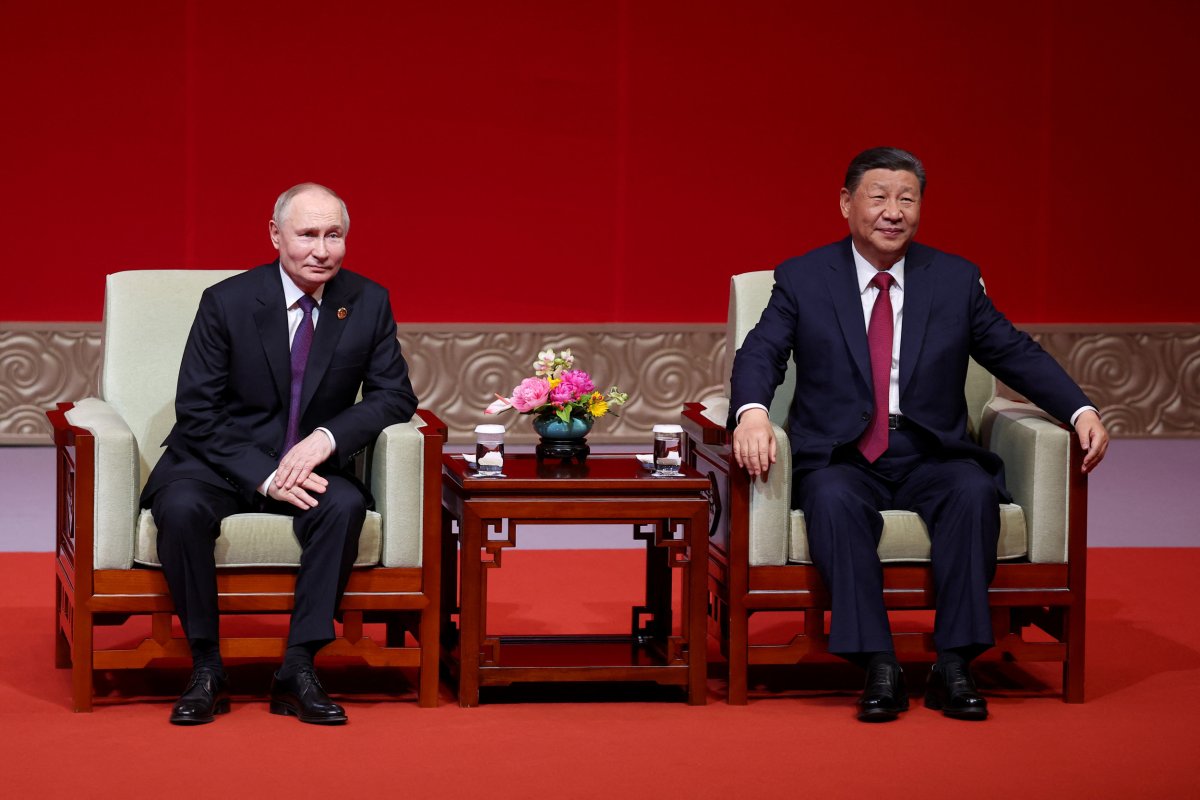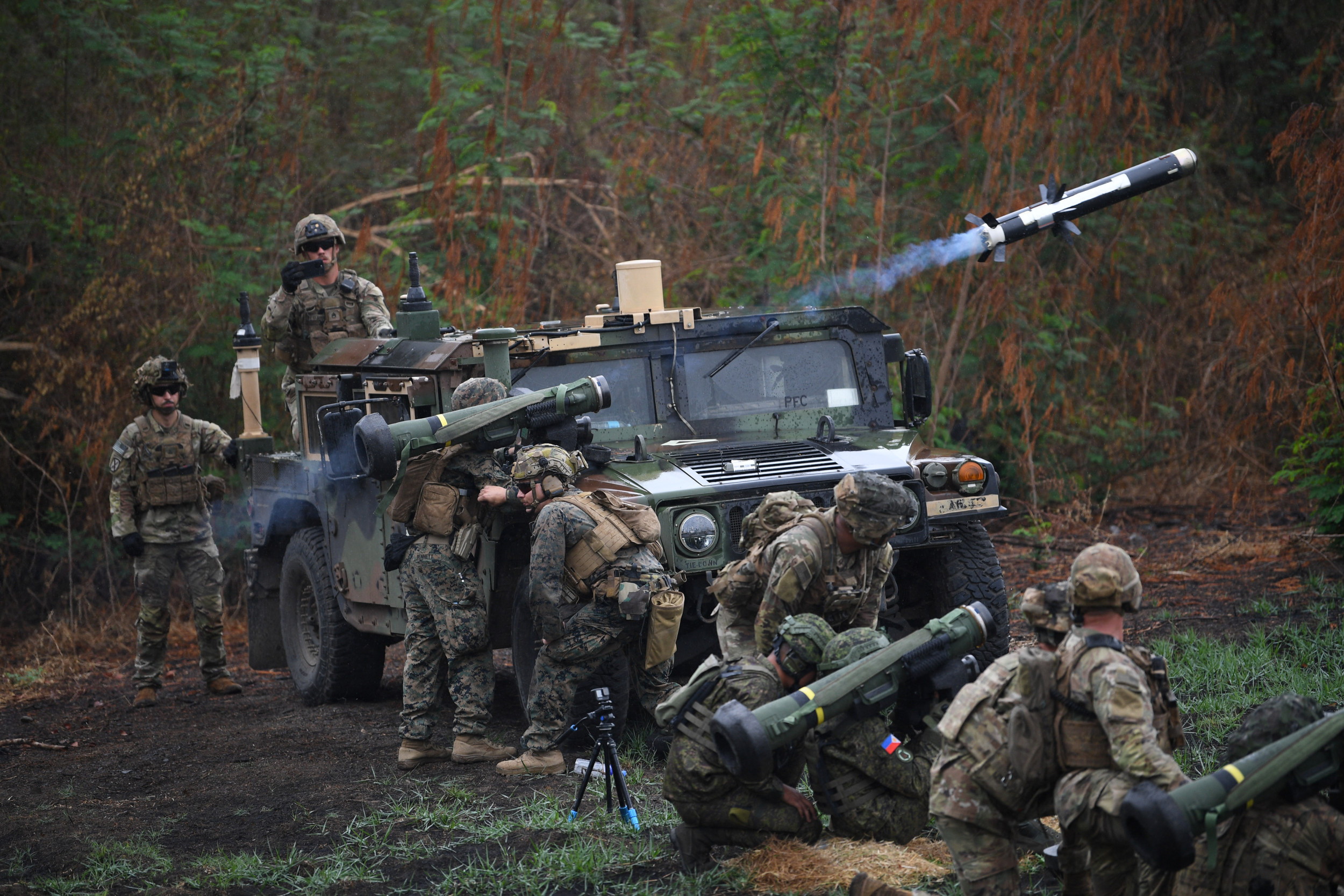Russian President Vladimir Putin and Chinese President Xi Jinping have issued a one-sentence statement about nuclear war as part of their "new era" strategic partnership.
Putin and Xi announced plans to deepen their partnership on Thursday, issuing a statement addressing their position on a number of issues facing the world, ranging from questions about the economy to the war between Russia and Ukraine. China and Russia have steadily strengthened ties as the two countries have found regularly themselves at odds with much of the West.
The United States has seen its long-frayed relations with both countries become even more strained in recent years. Washington emerged as a staunch supporter of Ukraine after Putin ordered an invasion of the Eastern European nation in February 2022, delivering billions of dollars of aid to help Kyiv defend itself.
Meanwhile, relations with China remain tense over, among other concerns, Taiwan. The question of Taiwanese independence has been a sticking point between the U.S. and China.

Beijing's "One China" policy dictates that Taiwan, an island off the country's coast, is part of China. Taiwan's leaders, however, consider the island to be its own nation. While the United States does not officially recognize the island's independence, it has pledged to defend it against a Chinese invasion.
Some experts and officials have raised concerns that these regional conflicts could eventually escalate into a wider war with the United States, culminating in fears that nuclear weapons could eventually be used.
However, China and Russia addressed their stance on nuclear war in their joint statement issued on Thursday.
"There can be no winners in a nuclear war and it should never be fought," the statement reads.
Newsweek reached out to the Russian Ministry of Foreign Affairs and China's International Press Center for further comment via email.
Javed Ali, a professor at the University of Michigan and former senior director for counterterrorism at the National Security Council, told Newsweek on Thursday the statement "indicates the confidence both countries feel about declared nuclear powers and how those weapons—like for the United States, France, and Great Britain--are part of each country's national security posture."
The summit is an "indicator of the strong relationship" between the two counties as the two leaders both believe the U.S. and allies have worked to diminish their influence, according to Ali.
"The degree to which these Russian and Chinese ties endure is an open question, since both President Xi and President Putin also have to manage their national interests and may view the current framework as more transactional than strategic," he said noting that U.S. policy treats Russia and China differently given deeper economic ties to Beijing.
Putin warned during a statement in March that the chances of nuclear war would increase if Western nations send troops to Ukraine, which has long been viewed as a red line for Russia that Ukraine's allies have not been willing to cross.
While Russian authorities have long sought to downplay nuclear fears, pundits on Russian state TV, which aligns with the Kremlin, have repeatedly discussed the possibility of nuclear war, fueling concerns.
In response to Putin's remarks in March, Mao Ning, a spokesperson for China's Foreign Ministry, warned about the risks of nuclear war just days later.
"In January 2022, leaders of the five nuclear-weapon states issued a joint-statement, affirming that a nuclear war cannot be won and must never be fought," she said. "China believes that all nuclear weapon states need to embrace the idea of common security and uphold global strategic balance and stability."
Mao continued: "Under the current circumstances, parties need to jointly seek de-escalation and lower strategic risks."
Uncommon Knowledge
Newsweek is committed to challenging conventional wisdom and finding connections in the search for common ground.
Newsweek is committed to challenging conventional wisdom and finding connections in the search for common ground.
fairness meter
To Rate This Article
About the writer
Andrew Stanton is a Newsweek weekend reporter based in Maine. His role is reporting on U.S. politics and social issues. ... Read more





